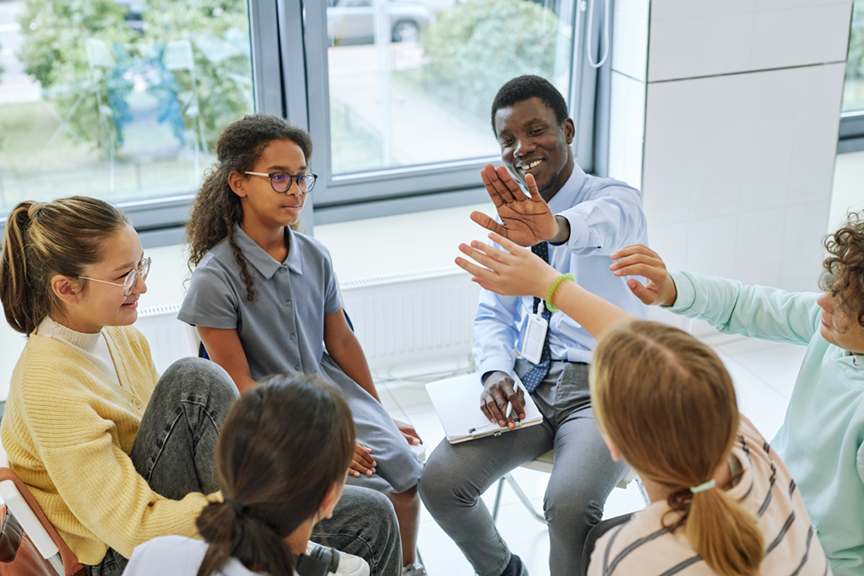
Showcase psychology by mentoring Grade 8 learners.
This project is focused upon learner autonomy and responsibility. It could be easily adapted for any subject at any level. The example included below is for a Psychology 40S class.
Ms. P. asked learners to work together to create a whole-class project with no “product” prescribed. The rules were simple: create something that can be shared with a community outside of the school, showcase their understanding of multiple course outcomes as a class (everyone must have a job), and include primary and secondary sources in the research. Learners were also given interview questions and reflection questions before they began their brainstorming so the project’s purpose was clear.
Before beginning, Ms. P. reminded the class of their norms of behaviour, the need for everyone to contribute, and the differences in communication style they all have. She encouraged them to go beyond a “class vote” (the class discussed the word “consensus” and strategies for reaching it), and to creatively determine how they could hear everyone’s voice to make sure they were heard. She asked learners to consider what information they would be most interested in exploring and who they imagined their audience could be. As much as possible, she allowed the learners to organize themselves in class-wide conversation.
Learners began their discussions, considering the depths of the course, their skillset, and its feasibility. Ms. P stepped to the side, interjecting only to remind learners of the accountability pieces she had implemented. These included daily logs to record how they contributed each day, beginning-of-period planning sessions to ensure everyone knew their direction for the class, and short, daily check-ins with her to make sure they were on a good path.
Below is a description of how this project took shape. Similar projects have resulted in whole-class presentations, videos, and a mental health week at school.
Learners decided they would visit two Grade 8 classes and teach them about the transition to high school, what to expect, and strategies for success through the lens of psychology course content and outcomes. Their own experiences, stresses, and reflection heavily informed the direction of their presentations. As needed and when asked for support, Ms. P organically scaffolded communication with the schools and other contacts. She did not do these tasks for the learners; instead, she taught them about timelines, professional courtesy, the needs of the age group they chose as an audience, and so on. She encouraged learners to work to their strengths and encouraged autonomy within a cohesive project.
In the end, learners created stations where they talked about learning, how the brain develops through adolescence, mental health maintenance and self-care, the importance of spirituality through a biopsychological lens, intergenerational trauma, stress management, what hormones are and how they may affect behaviour, understanding how we have become who we are, the importance of our culture in development, and more. They took on distinct roles in communicating with the Middle Years schools, and established the visit, its structure, and its desired outcomes. They organized activities at the stations and considered how they could present this high-level material in an accessible way. They thought about the learners’ needs in Grade 8 and how the information that psychology provides might have helped them improve their transition to high school.
After the presentations, learners reflected on their contributions to the process and provided evidence of the work they completed through preparation and presentation. They also conducted an interview with Ms. P to share what they learned, challenges they faced, and which outcomes were mastered in the creation and execution of this project.
The final element—self-assessment and interview reflections—is key to assessing student learning beyond their project. This is especially important in determining their comfort with material that was not directly included in their work, and when investigating the quality of their work in the dimensions of communication and citizenship.